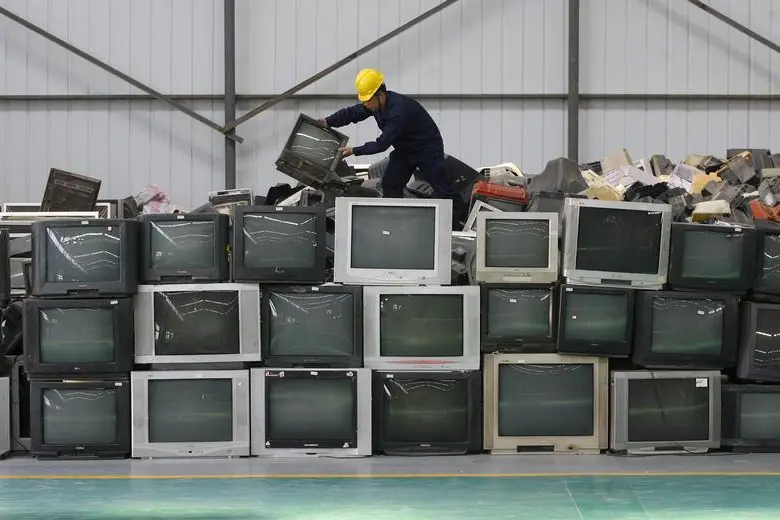PHOTO
DAMMAM — Five million ton of electronic waste are produced by the Kingdom annually, an increase of 25 percent per annum, which highlights the need to redouble efforts and initiatives to recycle hardware, according to the association concerned with recycling computers.
The e-waste is not only a Kingdom’s issue, but a global one with statistics showing that 50 million ton of old electronic devices being discarded worldwide each year, according to a report in Al-Watan newspaper.
The official spokesman of the General Authority for Meteorology and Environment Hussein Al-Qahtani said that: “The Kingdom is committed to Basel Convention on the Control of Transboundary Movements of Hazardous Wastes and their Disposal.”
The convention was adopted on March 22, 1989. Over the past 20 years, the Basel Convention has had ample occasion to adjust to new global developments and needs with regards to waste management over the years, and has risen to these challenges.
Al-Qahtani added, “Hazardous wastes need to be disposed of in accordance with the regulations and national laws, which require special methods and techniques to process and deal with them.
“It cannot be disposed of and put in household waste sites because of the hazardous nature of these goods and its effects on the environment and public safety.”
Al-Qahtani said, “Electronic waste is not easy to break down, and there are some elements that cause environmental pollution, so there is a need among some industrial sectors to recycle the waste in appropriate ways.”
He added: “The authority has legislative and executive branches that encourage and facilitate the task of those who wish to recycle this waste and start initiatives in collaboration with other agencies. We have also launched initiatives to collect mobile phones and to define the risks of e-waste materials, and its impact on the environment and marine life.”
General Supervisor of the Charitable Society for the Rehabilitation of Computers ‘Ertiqa’ Saleh Bazfr, while stressing the fact of rise in e-waste, said, “E-waste is one of the fastest growing waste elements at the moment, where the Kingdom produces 5 million ton annually, an increase of 25 percent per annum. This is largely due to the country’s development. We need to focus on this waste due to the hazardous nature and toxic elements. That’s why we launched ‘Ertiqa’ in a bid to reduce environmental pollution through the rehabilitation of old computers. In addition, we educate those underprivileged people in order to eliminate illiteracy and spread digital literacy.”
He said, “Raising awareness in economic and government sectors is the first step to cut e-pollution, then stressing the seriousness and the effects of disposing computers in the wrong manner is the next step.”
© The Saudi Gazette 2017





















